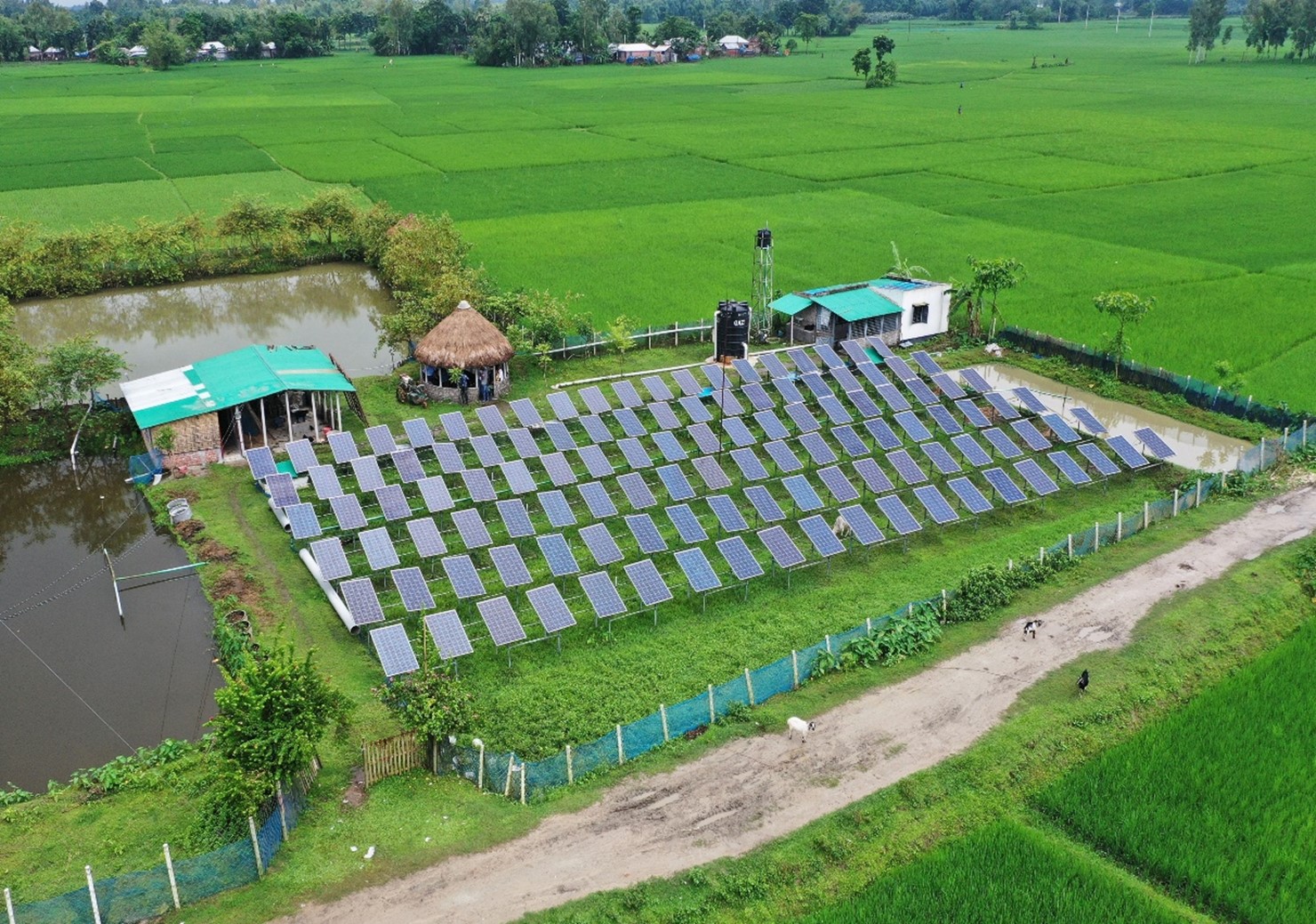By

(An Integrated SIP System of IDCOL / Image credit: SoLAR-SA)
Diesel-based groundwater irrigation has been crucial for Bangladesh’s Boro rice cultivation and subsequent food security. As of 2019, boro accounted for more than half of Bangladesh’s food grain production.
However, Bangladesh imports much of its diesel. As a result, it spends roughly $3.2 billion annually on import bills, which puts a huge burden on the state exchequer through rising international prices and increasing government subsidies on petroleum. Protection from fuel price shocks thus forms one of the defining objectives of the Bangladesh government’s Renewable Energy Policy, 2008. In addition, the renewable energy sector is seeing a growing interest in solar, and multiple business models for solar-based irrigation are emerging in the country.
The fee-for-service model, led by the Infrastructure Development Company Limited (IDCOL), is a unique SIP financing model. IDCOL is a non-banking financial institution licensed by the Bangladesh Bank in 1998, and one of its primary mandates is to finance renewable energy. (An Integrated SIP System of IDCOL / Image credit: SoLAR-SA)
Contrary to the conventional practice of financing SIPs through government subsidies to farmers, IDCOL finances private-sector sponsors for setting up the SIPs. The sponsor receives 50% of the system cost as a grant/subsidy, 35% as a loan and the remaining 15% is upfront equity that the sponsor has to pay to IDCOL. The repayment period is ten years, and the sponsor sells irrigation water to farmers to repay the loan.
The IDCOL model is not only devoid of the prospect of elite capture of subsidy financing but also removes the prohibitive (installation) cost barrier that deters small and marginal holders from switching to solar irrigation from diesel. With private companies providing capital and undertaking the risk of setting up the irrigation business, the barrier to entry into the solar energy market for these farmers is removed. Potentially it enables them to access a cheaper and cleaner irrigation technology with low / no state assistance.
In our ongoing SIP impact evaluation study in Bangladesh, our SoLAR team colleagues are exploring the drivers and constraints for (amplifying) the IDCOL PPP model for solar financing. Keep watching this space for more detailed findings from our SoLAR-Bangladesh research; and also for the presentation by Archisman Mitra, Country Lead, SoLAR-Bangladesh, at the Asian Development Bank (ADB) Asia Water Forum, 8-11 August 2022.
Source: SoLAR-SA

